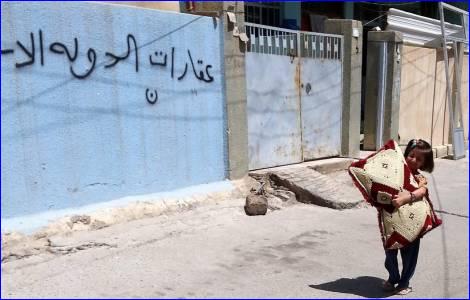


The days of the jihadist conquest of Mosul are considered the beginning of a period of trauma and pain that profoundly changed the profile of a city once described as a place of coexistence between different faith communities, while the city is described as the cradle of one of the oldest Christian communities in the world.
Related: Timeline of ISIS in Iraq
Related: Attacks on Assyrians in Syria By ISIS and Other Muslim Groups
Until two decades ago, there were more than 100,000 Christians in Mosul, part of a social fabric in which the Sunni majority lived peacefully alongside Shiites, Yazidis and other minorities. After the US-led military intervention that led to the overthrow of Saddam Hussein's regime in 2003, the number of Christians began to decline. Since then, sectarian violence had increased.
In June ten years ago, many Christian families had left Mosul, even before the city had been completely captured by IS militants. On June 12, the then Chaldean Archbishop of Mosul, Amel Shimon Nona, confirmed to Fides that the vast majority of the 1,200 Christian families had left the city. He and his priests had found refuge in the villages of the Nineveh Plain, such as Kramles and Tilkif, a few dozen kilometers from Mosul. At the same time, Archbishop Nona denied the rumors of attacks on churches by IS fighters. "Our church, dedicated to the Holy Spirit," the then Archbishop told Fides, "was looted by gangs of thieves yesterday and the day before, while the city was being taken over by IS. But the Muslim families living nearby called the Islamist militiamen, who intervened and put an end to the looting. The Muslim families themselves called us to tell us that they have now taken over the church and will not let the looters return".
In the weeks that followed, the exodus of thousands of Christians from Mosul continued. Their homes, along with those of Shiites, were "marked" as homes that could be expropriated by the militiamen and new followers of the Islamic State. Two nuns and three teenagers were temporarily kidnapped by the jihadists. Then, in January 2015, the soldiers of the self-proclaimed "caliphate" expelled from Mosul ten elderly Chaldean and Syrian Catholic Christians who had been rounded up from the villages of the Nineveh Plain and temporarily housed in Iraq's second largest city after they refused to renounce Christianity and convert to Islam. During the jihadist occupation, Mosul became the Iraqi capital of the Islamic State. A year later, in June 2015, ISIS controlled a third of Iraq and almost half of Syria, threatened Libya and was a member of dozens of armed groups in the Middle East and Africa.
The military operation to end jihadist rule in Mosul in 2017 lasted several months. "After seven years," Bishop Paul Thabit Mekko told Fides, "I believe that more than 90 percent of the Christians who fled Mosul do not think of returning. What they saw created a psychological wall. Some were expelled, others felt betrayed. We do not know if the situation will change. Today many live in Ankawa, the district of Erbil inhabited by Christians, they feel safer there, there are more opportunities to work. They do not think of returning to a city that has changed a lot since their time. They would not recognize it".

or register to post a comment.